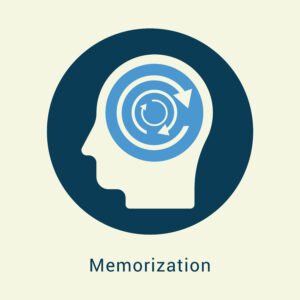 Most people agree it is important to obtain a college degree to further career development. However, when young people get into college, they often find themselves in trouble and feel overwhelmed because of the workload they haven’t been ready for. Indeed, many professors provide too many assignments that require memorization and a comprehensive understanding of the subject. And the latter is sometimes even more crucial. It doesn’t matter how long you try to memorize weird concepts and vague ideas since they are nothing more than empty sounds if they don’t mean anything to you.
Most people agree it is important to obtain a college degree to further career development. However, when young people get into college, they often find themselves in trouble and feel overwhelmed because of the workload they haven’t been ready for. Indeed, many professors provide too many assignments that require memorization and a comprehensive understanding of the subject. And the latter is sometimes even more crucial. It doesn’t matter how long you try to memorize weird concepts and vague ideas since they are nothing more than empty sounds if they don’t mean anything to you.
One approach is to rely on memory improvement techniques. If it is hard to find free time for all these “innovative” techniques, it is worth reading writing services reviews to find someone who can help you meet this challenge. Everything takes time and practice, so you should regularly allocate time for training your memory and using it more effectively. Here are some memorization techniques that can help you get success in college.
- Organize your space
First, you should create the required environment that will contribute to your concentration. If you cannot stay focused, you will hardly be able to achieve the desired result. Thus, you should eliminate all distractions. For example, you should turn off your music, TV set, put aside your smartphone and block all the websites that allure you when you don’t want to work on the task. So, it should be a clear and calm place where you can completely immerse yourself in the material and stay focused.
- Visualize the info
This technique is also known as the Method of Loci. It dates back to ancient Rome, so it is a time-tested technique that suggests associating a house or any other familiar place with pieces of information you are trying to memorize. For example, imagine that you enter the house and go to your bedroom. Every room or piece of furniture on your way should be “tied” to new info, so when you need to recall it, you can take this “journey” through your house. You can open a cupboard to recall chemical formulas or get into the bathroom to find out the operating principle of the turboexpander.
- Use acronyms and mnemonics
Many people turn to mnemonics when they want to memorize some core principles. It represents a song, a phrase, or a rhyme that you can tie to a bit of info in your head. This technique allows you to remember accurate info and commit it to your long-term memory to gain true knowledge. You can develop various patterns and associate the first letter of a certain word with the info you need to remember. It can be especially useful if it is about memorizing some lists or ordered info that is nothing but dry facts. You can even create some weird associations, so it is up to you to decide what it will be.
- Turn to image-name associations
If you have a good memory for names, you can use this feature to your advantage and associate them with some images or facts in a nonstandard way. You can associate some of your friends with the presidents or think about those who have similar facial features, so it will be easier to recall the whole chain of events. If it is hard for you to find room in your schedule to practice such techniques, it is worth examining the EduBirdie review and getting a trustworthy helper to put your mind at ease.
- Use the changing method
If you cannot remember some dry facts, it is worth coming up with a story around it. Such content will help your brain create new connections and memorize the info provided. For example, if you need to remember the planets’ order and names, you can make up a fairy tale about them arranging a party. Of course, the story will be weird and silly, but it will make it easier to remember uninteresting or complicated things.
- Use various locations for studying
It has been proved that we remember information better if something pleasant or just unexpected or new happens to us at the moment. New places and emotions contribute to the memorization of the information. Thus, your memory should be triggered by various clues in your environment. So, if you spent an hour trying to remember a bit of info at home, but all your efforts were in vain, it is time to change the scenery.
- Take notes and create examples
Some people remember information much better when they write it down and come up with examples for each case. If you belong to this category, you should highlight all the key moments of what you are studying and take notes, making up several examples for each bit of information. It is especially useful when learning new words or set phrases in a foreign language. Actually, when developing the examples, you can also involve all the techniques mentioned above to enhance the result. You can also use text to speech software like WellSaid Labs to memorize phrases even in your smartphone.






